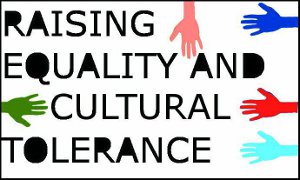Results
The results of this project will generate and disseminate positive messages, aimed at achieving compatible coexistence respectful of one another European citizens and the "newcomers" (refugees, migrants, repatriated persons).
The expected results acquired during project duration include:
- Methodological guide for teachers containing set of innovative methods - methods that will be tested during pilot training sessions will be gathered into 'Lessons of tolerance' - inclusive teaching of adults", and will include issues of tolerance, social diversity and anti-discrimination into trainings. Guide will be published in the electronic version in the form of an open training plan with numerous "examples of life" proposals teaching materials, explanation of concepts and proposals to introduce elements of the anti-discrimination education. Training will be devoted to national and ethnic minorities, refugees, religious tolerance and outlook. Guides will be made available to adult education institutions.
- "Methodology Guide: Lessons of Tolerance - Inclusive Teaching of Adults" - English version
- "Methodology Guide: Lessons of Tolerance - Inclusive Teaching of Adults" - Polish version
- "Methodology Guide: Lessons of Tolerance - Inclusive Teaching of Adults" - Greek version
- "Methodology Guide: Lessons of Tolerance - Inclusive Teaching of Adults" - Italian version
- "Methodology Guide: Lessons of Tolerance - Inclusive Teaching of Adults" - Portuguese version
- Pilot training sessions - conducted in adult education institutions to test the materials and introduce any amendments. Training sessions will be organised for educator and workers from adult training institutions to use in practice innovative methods as described above.
- Marketing materials such as project website, leaflet, posters, etc. - every partner will have to translate common materials into their country language and take care of distributing the materials and any information about project, its progress, activities and events. The materials will also help with conveying a positive message regarding subject of this project.
Leaflet:
- REaCT leaflet English version
- REaCT leaflet Greek version
- REaCT leaflet Italian version
- REaCT leaflet Polish version
- REaCT leaflet Portuguese version
Website: REaCT official website
Newsletters: - Knowledge and experience gained by the participants:
- staff and trainers / facilitators / educators - will be active participants of the project from the very beginning. They will exchange experience and share their knowledge on the new methods. They will work together to prepare the methodological tool and they will also conduct pilot training sessions in their institutions.
- learners will be part of pilot training sessions and will share their feedback on the new methods.
- Greater cultural awareness - first of all the training sessions will be focused on intercultural and cultural differences. Secondly partners will have a chance to visit their countries and institutions, to learn about local specific contexts, culture, mentality and so on. During transnational meetings there will be intercultural events organised to enhance interaction and learning process about other cultures.







